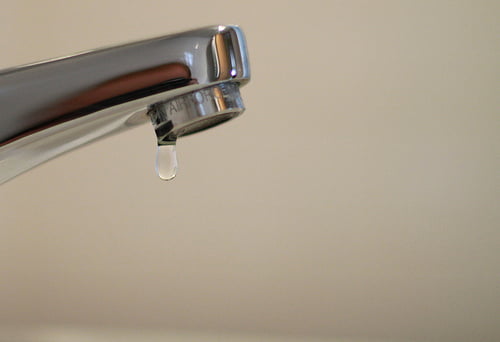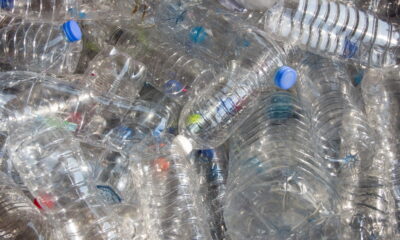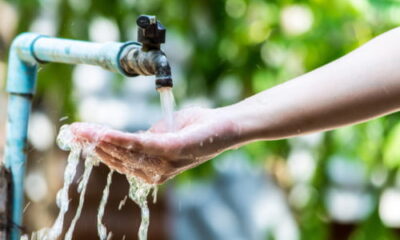

Features
Does saving water make sense?
Andy Redfern, co-founder of EthicalSuperstore.com, lays out some of the easy steps you can take to reduce your water consumption.
Another wet Bank Holiday weekend comes to an end – as someone cheekily suggested on Twitter, “A great Jubilee celebration – a nation united by what we love the most – discussing the wet weather”.
For the crowds lining the Thames on Sunday there seemed to be almost as much water falling from the sky as there was in the river – ironic then that we still have 16 hosepipe bans in place across the country. Do we really need to save water? When, as it seems inevitable now, the hose pipe bans do get lifted, is there any point in saving water in a country so prone to a good soaking?
My dad, a resident of Manchester and regular walker on the sodden paths of the dark peaks of Kinder Scout, Bleaklow and Black Hill, has always argued that saving water when you live in the north west is a waste of time. Water is seemingly everywhere – why are we trying to save it?
Well the answer is more complex than you might think. To one degree my dad is right – we often have more water than we know what to do with. However, the environmental impact of water goes way beyond its use as a raw material.
Consider the cost of actually pumping water around. While some places in the UK have gravity-fed systems – large parts of the South East, South West, Midlands and East Anglia use pumps to move water around. More water used, more power required to drive the pumps that move the water.
Consider the cost of handling and treating the sewage. According to the Environment Agency, 10 billion litres of sewage are produced in the UK every day. The water treatment plants use energy and require the delivery of chemicals, sand and gravel to make the purification process work. The resulting sludge often gets taken away by the lorry load for landfill, land reclamation or farm use. (Of course it could be used as the input to a bio-gas system – but not much sign of that happening in the UK yet!)
Consider meeting our UK obligations under the EU Habitats Directive where the UK committed to reducing the water usage around the Natura 2000 protected sites by an equivalent amount of water as used by 1.5million people. There are 414 sites in the UK where flora and fauna will be endangered if we do not reduce the ground water abstraction.
So it may have been chucking it down for all of June so far but there is still a whole host of good green reasons to save water. And there are plenty of things that you can do in the home and garden too:
- What about a water butt? Collect rain off your roof on rainy days and reuse it in your garden on dry days. Has the double advantage of saving good water from entering the sewerage system as well as not using pure tap water on your garden. Everyone with a garden should have one. The is a great range of water butts stocked by Even Greener – there should be one to suit every size of garden.
- How about a shower timer to train your kids not to spend too long in the Shower? Of course it has the double saving of cutting down how much energy you use to produce hot water too.
- Or how about using less water when you flush the loo? An eco cistern has a lower overall volume of water it uses – usually around 5 litres rather than the 10-12 litres that old style cisterns use. Of course, if you just want to make old cistern use less water then try the Hippo Water Saver which reduces the flush volume by up to 3 litres a flush.
So even if you live in the wettest place in Great Britain (in case you wondered, it’s Dalness in Glen Etive, which endures 3.3 metres of rain a year) you will still be reducing your environmental impact if you reduce your water consumption. Go on, splash out today.
Andy Redfern is a co-founder of EthicalSuperstore.com and a former director of Traidcraft and Cafedirect. He lives in Gateshead with his wife, five children, two cats and water butt. You can follow his random musings on Twitter: @andyredfern.
Further reading:
The Green Doctors: making the world more sustainable


 Environment12 months ago
Environment12 months agoAre Polymer Banknotes: an Eco-Friendly Trend or a Groundswell?

 Features11 months ago
Features11 months agoEco-Friendly Cryptocurrencies: Sustainable Investment Choices

 Features12 months ago
Features12 months agoEco-Friendly Crypto Traders Must Find the Right Exchange

 Energy11 months ago
Energy11 months agoThe Growing Role of Solar Panels in Ireland’s Energy Future




























